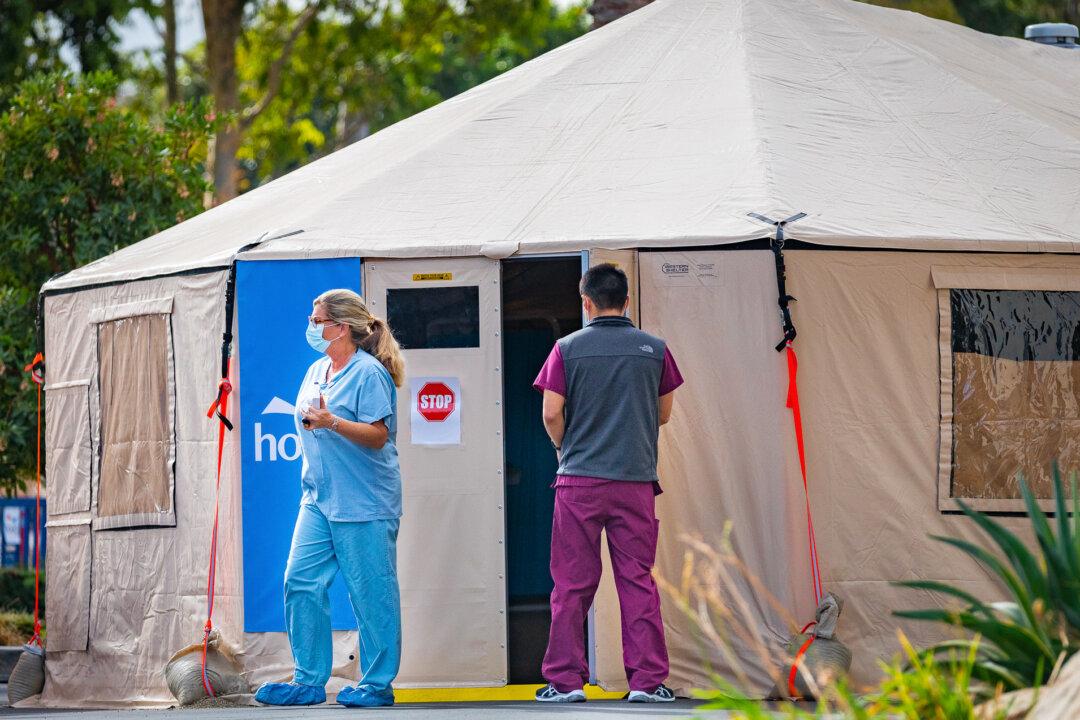SANTA ANA, Calif. (CNS)—Orange County reported a whopping 3,121 new cases of COVID-19 and 14 additional deaths Dec. 13, while again setting a new record for hospitalizations related to the disease.
County officials reported 1,236 hospitalizations Dec. 13, with 284 people in intensive care units (ICU). That was an increase over Dec. 12, when 1,150 were hospitalized and 273 in ICU. Prior to this month, the record for ICU patients was 245 in mid-July, and the overall hospitalizations have been breaking records daily since Dec. 2.





